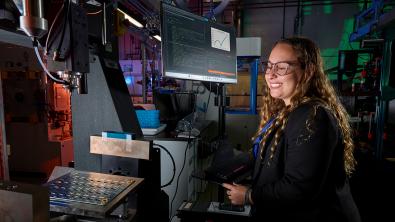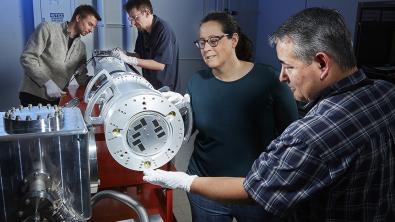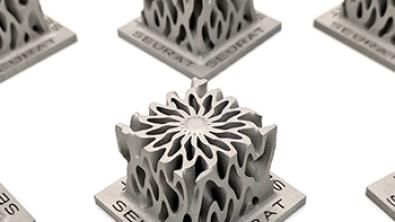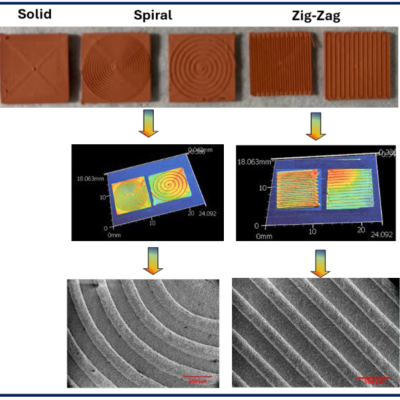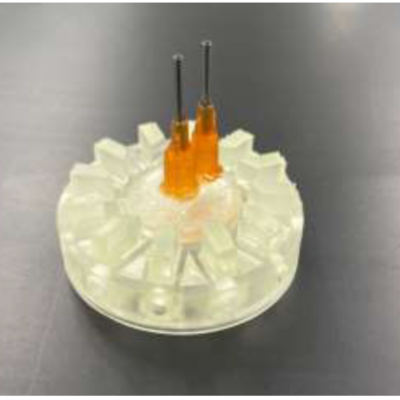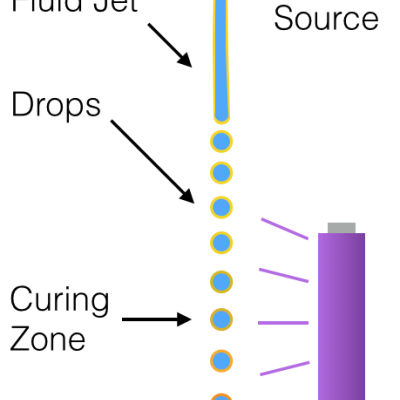Advanced Manufacturing is the use of innovative technologies to create new or existing products. Lawrence Livermore National Laboratory’s advanced manufacturing portfolio can be organized into four main groups: Additive Manufacturing is the process of joining materials to make objects from 3D model data, usually layer upon layer, as opposed to subtractive manufacturing methodologies. Precision Engineering is the design and fabrication of machines, fixtures, and other structure that have exceptionally low tolerances, are repeatable, and are stable over time. Manufacturing Simulation & Automation comprises technologies that reduce human intervention in manufacturing processes, as well as a set of tools that allows for experimentation and validation of product, process, and system designs & configurations. Manufacturing Improvements are inventions that improve throughput/efficiency, or that reduce cost/waste.
Portfolio News and Multimedia
To address this critical energy need, the California Energy Commission recently awarded local startup DarmokTech and Lawrence Livermore National Laboratory (LLNL) a grant of $2 million over three years to pursue recyclable, sodium polymer-based batteries. The technology aims to enhance cost-effective energy storage and grid reliability in the state and beyond. The collaboration is indicative of the type of public-private partnerships that develop as a result of technology transfer and the entrepreneurial programs run by LLNL’s Innovation and Partnerships Office (IPO).
The trade journal R&D World Magazine recently announced the winners of the awards, often called the “Oscars of innovation,” recognizing new commercial products, technologies and materials that are available for sale or license for their technological significance.
Lawrence Livermore National Laboratory (LLNL) scientists and engineers have earned four awards among the top 100 inventions worldwide. With this year’s results, the Laboratory has now collected a total of 186 R&D 100 awards since 1978.
Submitted through LLNL’s Innovation and Partnerships Office (IPO), these awards recognize the impact that Livermore innovation, in collaboration with industry partners, can have on the U.S. economy as well as globally.
Seurat Technologies, a Massachusetts-based startup, licensed a LLNL-invented metal AM technology in 2015 with the intention of commercializing a high-speed, high-resolution 3D printer to produce metal parts at industrial scale. Since then, Seurat has developed the lasers, optics, and equipment needed to bring the technology to market, further strengthening LLNL’s mission-driven development of advanced materials and manufacturing processes. In this video, explore how Seurat, with investments from NVIDIA and others, could revolutionize metal additive manufacturing.


